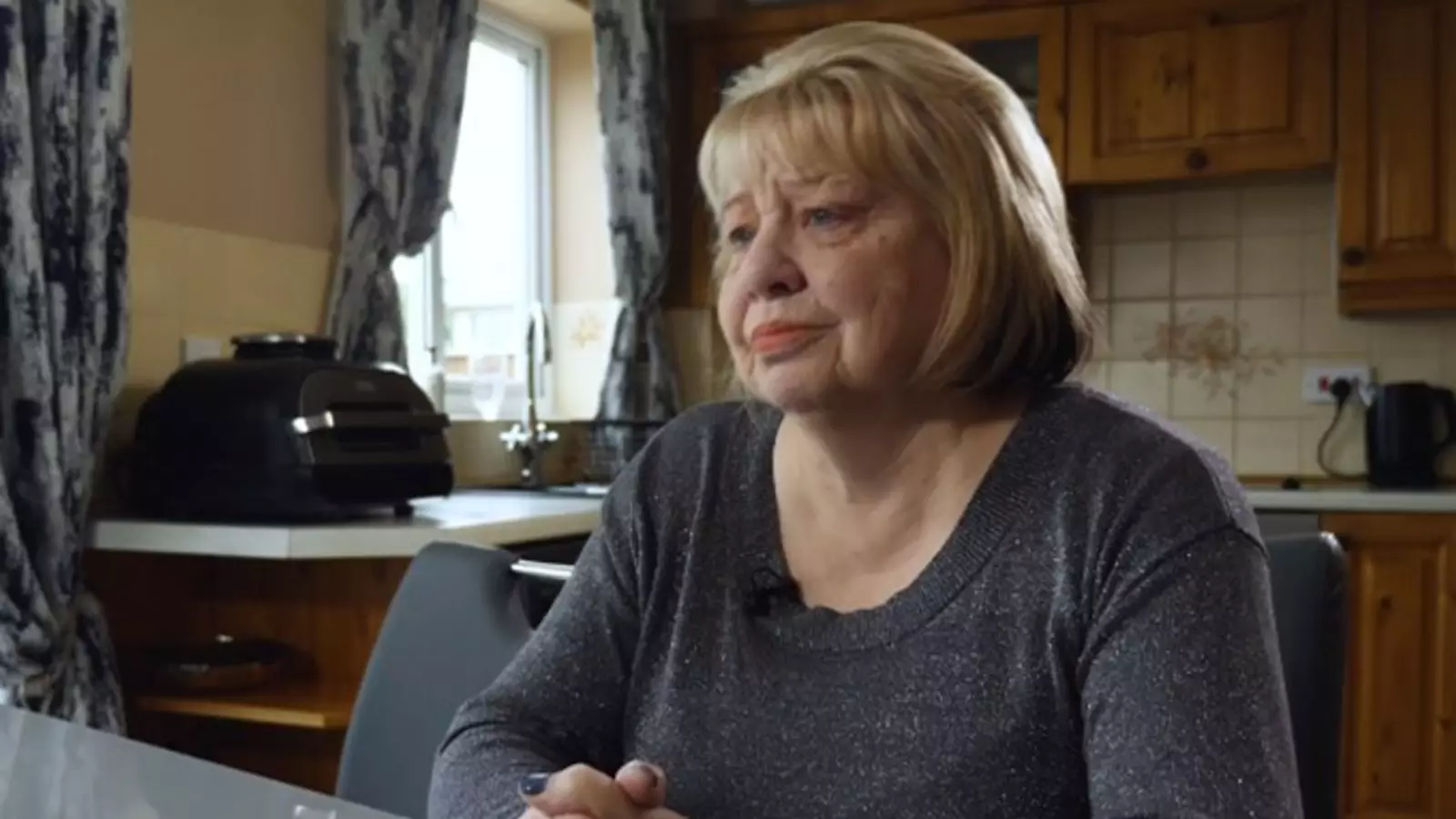The harrowing experiences of families navigating through terminal illness are often overlooked in public discourse. Diane Edwards, just ten days post the death of her ex-husband Mick, found herself grappling not only with loss but with a convoluted healthcare system that, in her words, failed them both during some of the darkest days of his battle with stage 4 bowel cancer.
Diane vividly recalls a bathroom filled with chaos rather than solace, a grim reminder of the nights spent caring for Mick as he descended into a physical abyss. The image of him struggling—blood pouring out, both physically and emotionally decimated—paints a disturbing picture. “It isn’t the same person you knew or you were married to,” she reflects, illustrating the stark transformation of someone who was once vibrant into a figure defined by disease and despair.
For several months, Mick had been blind and required assistance for even basic mobility, often left at the mercy of a system that seemed overwhelmed by its own complexities. The missed opportunities for accurate and timely diagnosis weigh heavily on Diane’s conscience. It raises a pertinent question: how is it that the healthcare system, designed to protect and facilitate, often falters at the moment it is needed most?
Diane explains that although there were many providers coming to assist her family, they were not equipped with the necessary medical training required to handle Mick’s dire conditions. “They weren’t medical carers,” she states, a sentiment that rings alarmingly true in a broader national context. It highlights a systemic issue where care providers, while well-intentioned, lack the specific qualifications to offer real assistance. This became painfully evident as Mick’s condition deteriorated further; the burden of care lay almost entirely on Diane, who found herself “at breaking point.”
The emotional toll was crippling; Diane speaks candidly about uncontrollable tears and sleepless nights, indicating a level of exhaustion that many caregivers experience when support systems fail them. It quickly becomes more than just a physical strain; the psychological impacts of inadequate care are profound and long-lasting.
Mick’s transition from hospital care to homecare is emblematic of a deeply fractured system. Upon discharge, he was enrolled in a fast-track care package called NHS Continuing Healthcare (CHC) that was supposed to cater to his medical needs. However, three months later, the assessment that followed—conducted remotely—denied him the palliative care that Diane felt was desperately needed. This crucial moment left them contemplating the unthinkable: selling their home to bridge the gap in care.
A lack of a family presence during such assessments exacerbates the feeling of isolation and vulnerability. Diane recalls with anguish how her ex-husband, stripped of his autonomy and confidence due to his condition, struggled to adapt to such a disheartening reality. The system seemed indifferent as Diane had to bear the emotionally draining task of informing Mick that he had lost his funding.
Amidst this turmoil, the response from the Shropshire, Telford, and Wrekin NHS Trust was procedural, focusing on the integrity of the CHC assessment process. However, research indicates that the allocation of care funding often mirrors a ‘postcode lottery’, where geographical location dictates the quality of care received. Evaluations reveal that only a fraction of individuals undergoing assessments are found eligible, with shocking variances in approval rates across different regions.
The pressing issue of social care inadequacies lies not just in individual stories but is symbolic of a larger crisis needing urgent attention. Experts emphasize the need for comprehensive reforms to create a more equitable system that ensures those at the end of life receive proper assistance tailored to their unique circumstances.
Despite the reinstatement of Mick’s CHC funding after intervention from a social worker and local GP, Diane highlights a wider concern regarding how terminal patients are treated. She believes that the emotional and medical toll suffered during the last days of her ex-husband’s life begs for fundamental changes that prioritize patient dignity and care.
If there’s anything Diane’s poignant narrative reveals, it’s the necessity for systemic reform within healthcare. For many families encountering the harsh realities of terminal illness, the current state of care can feel like an uphill battle—one that leaves them in despair rather than comfort. As society narrows its focus on healthcare funding and allocation, it must also reckoning with the human stories that lie at the heart of these statistics.


Leave a Reply